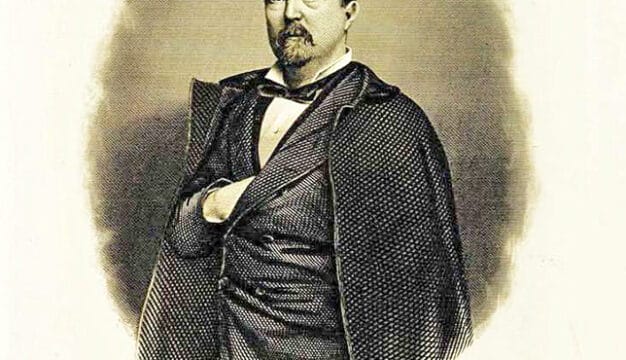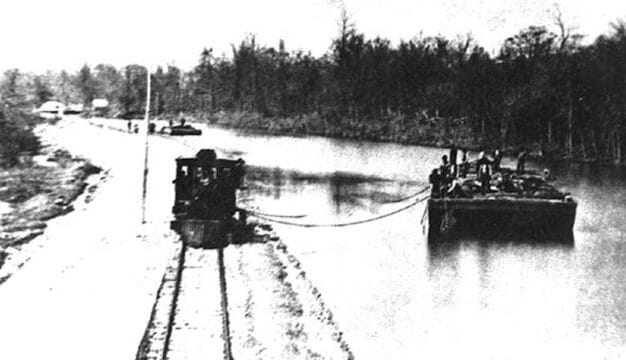Emory O. Jackson
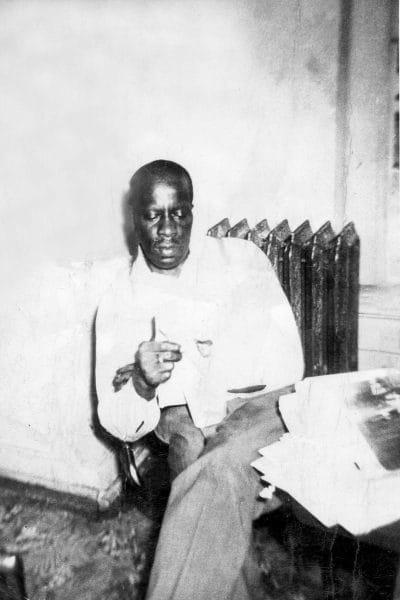 Emory O. Jackson
Emory Overton Jackson (1908-1975), a tireless voting rights activist, was a founder and first president of the Alabama State Conference of the National Association for the Advancement of Colored People (NAACP) branches and editor of the Birmingham World from 1941 to 1975. A strong advocate of voter rights, voter registration, and using the vote to build and strengthen political power in the black community, he maintained that disenfranchisement was the most “demeaning, dehumanizing and debilitating” of all the inequities blacks suffered.
Emory O. Jackson
Emory Overton Jackson (1908-1975), a tireless voting rights activist, was a founder and first president of the Alabama State Conference of the National Association for the Advancement of Colored People (NAACP) branches and editor of the Birmingham World from 1941 to 1975. A strong advocate of voter rights, voter registration, and using the vote to build and strengthen political power in the black community, he maintained that disenfranchisement was the most “demeaning, dehumanizing and debilitating” of all the inequities blacks suffered.
Jackson was born in Buena Vista, Georgia, on September 8, 1908, to Will Burt Jackson, a bricklayer, and his wife, Lovie Jones Jackson. Emory and his seven siblings were raised in the black middle-class Birmingham enclave of Enon Ridge, a neighborhood on the west side near Birmingham-Southern College. He attended Industrial High School, later named Parker High, one of the first and best black public high schools in the South. In 1928, he enrolled in Atlanta’s Morehouse College, where he served as president of the student government and editor of the newspaper, the Maroon Tiger.
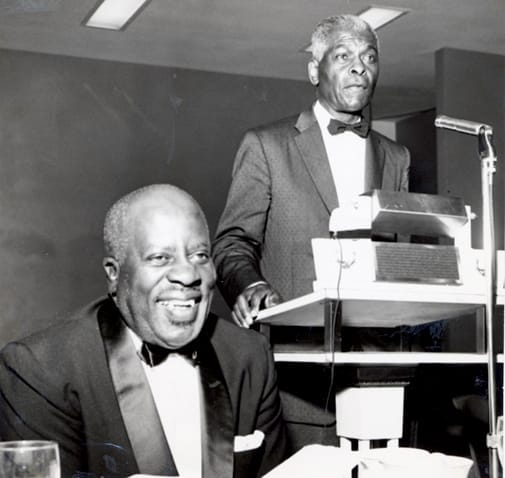 Emory Jackson and Benjamin Mays
Jackson graduated in 1932 with majors in English, economics, and education. He taught English and coached basketball at Carver High School in Dothan and then briefly at Westfield High in Birmingham, before joining the Birmingham World in 1934 as a book reviewer and sports writer. The World, founded in 1931, published news that was ignored by the national press—articles about black achievement and accomplishment. It also printed letters of protest about issues like segregation and discrimination that were rejected by the white press and reported civil rights news from the perspective of black people. The World had the largest circulation of any black paper in Alabama. Seven years later, Jackson had been promoted to managing editor and was known throughout the black South for his syndicated column, The Tip Off, in which he advocated for civil rights and social justice. He also covered the news of his time, including the landmark Brown v. Board of Education decision; the murder of Emmett Till in Money, Mississippi; the Montgomery Bus Boycott; and the Freedom Rides, always interpreting the historical significance of these events for his readers.
Emory Jackson and Benjamin Mays
Jackson graduated in 1932 with majors in English, economics, and education. He taught English and coached basketball at Carver High School in Dothan and then briefly at Westfield High in Birmingham, before joining the Birmingham World in 1934 as a book reviewer and sports writer. The World, founded in 1931, published news that was ignored by the national press—articles about black achievement and accomplishment. It also printed letters of protest about issues like segregation and discrimination that were rejected by the white press and reported civil rights news from the perspective of black people. The World had the largest circulation of any black paper in Alabama. Seven years later, Jackson had been promoted to managing editor and was known throughout the black South for his syndicated column, The Tip Off, in which he advocated for civil rights and social justice. He also covered the news of his time, including the landmark Brown v. Board of Education decision; the murder of Emmett Till in Money, Mississippi; the Montgomery Bus Boycott; and the Freedom Rides, always interpreting the historical significance of these events for his readers.
After serving briefly in the army during World War II, Jackson returned to Birmingham and joined the city’s NAACP chapter. (Founded in the early twentieth century, it was one of the oldest in Alabama.) As an NAACP official, Jackson helped returning black veterans to access their benefits authorized by the GI Bill of Rights. Birmingham’s population had doubled during the war, however, and veterans of both races were competing for limited housing and employment. Although federally funded, the GI Bill was administered locally; as a result, white job counselors often steered black clients, even those who had learned marketable skills in the military, to positions as dishwashers and laborers. Although blacks had the option to refuse these positions, those who did so were denied unemployment insurance benefits. In his columns, in speeches to community groups, and in person, Jackson pushed and prodded these veterans to register to vote so that they could gain some political leverage over these critical issues.
In 1946, Jackson led the NAACP’s challenge to Birmingham’s municipal zoning laws that relegated blacks to neighborhoods originally designated for commercial use. Later that year, NAACP attorney Arthur Shores filed suit in U.S. District Court and on July 31, 1947, Judge Clarence Mullin ruled the zoning ordinance unconstitutional. After that decision, blacks were free to purchase homes in what were called “border areas,” which were poor white neighborhoods that bordered on black neighborhoods. The Klu Klux Klan responded to this development by bombing black homes and businesses in these neighborhoods, and the white residents, fearing school integration and lowered property values, ignored and in some cases supported these actions. Nearly 50 unsolved bombings rocked the city between 1948 and 1957. In the Tip Off, Jackson denounced the bombings and the slowness of the city police to investigate them. He also called for hiring black police officers and firefighters to serve these areas.
In May 1956, Alabama attorney general John Patterson won an injunction against the NAACP for allegedly sponsoring the illegal Montgomery Bus boycott and for financing Autherine Lucy‘s attempt to integrate the University of Alabama, which was a perfectly legal action. NAACP officers were subsequently ordered to turn over their membership and contributor rolls to the attorney general’s office. When they refused, they were barred from operating in Alabama. Jackson secured these records in the Birmingham World’s safe to keep them out of the hands of state officials who wanted to use the information to intimidate members and contributors.
Jackson initially supported both Martin Luther King Jr.‘s Southern Christian Leadership Conference (SCLC) and Fred Shuttlesworth‘s Alabama Christian Movement for Human Rights (ACMHR), which continued the mission of the outlawed NAACP. Gradually, however, Jackson withdrew his support as these organizations relaxed their emphasis on voter registration and concentrated on mass demonstrations to integrate public accommodations and public schools.
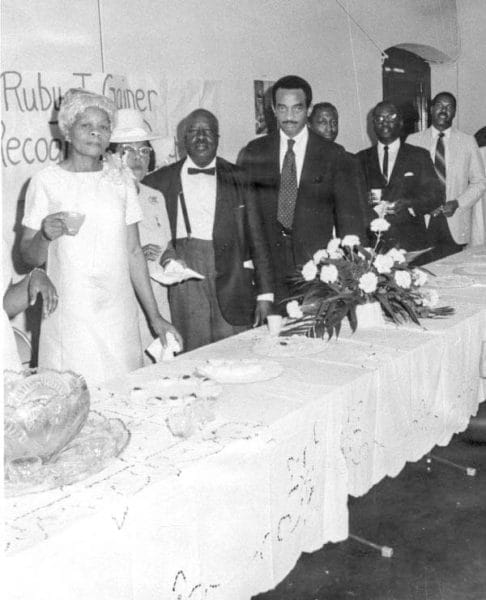 Ruby Jackson Gainer and Emory O. Jackson
Jackson considered segregation a constitutional issue and believed that its resolution belonged in the courts. He also believed that confrontational behavior like non-violent direct action could produce only short-term gains. His blueprint for black liberation centered on registering voters, amassing political power, and working for permanent change through state legislatures and the federal courts. During the 1960s, he became the spokesman for Birmingham’s black freedom movement leaders who held the minority view that insisted on protesting within the bounds of the law. Jackson believed that pursuing desegregation through legal channels, rather than disrupting the peace and order of the city through demonstrations, would be more effective in desegregating public facilities.
Ruby Jackson Gainer and Emory O. Jackson
Jackson considered segregation a constitutional issue and believed that its resolution belonged in the courts. He also believed that confrontational behavior like non-violent direct action could produce only short-term gains. His blueprint for black liberation centered on registering voters, amassing political power, and working for permanent change through state legislatures and the federal courts. During the 1960s, he became the spokesman for Birmingham’s black freedom movement leaders who held the minority view that insisted on protesting within the bounds of the law. Jackson believed that pursuing desegregation through legal channels, rather than disrupting the peace and order of the city through demonstrations, would be more effective in desegregating public facilities.
Emory Jackson never married, and he never retired. He continued to edit the Birmingham World until September 10, 1975, when he died at the age of 67. Richard Arrington, Birmingham’s first black mayor and one of Jackson’s former high school students, recalled that Jackson was convinced that the key to black liberation rested primarily in the grasp of blacks themselves. Describing him as an uncomplicated man who believed in the value of black institutions and of hard work, Arrington noted that although there are few monuments to Jackson’s greatness in Birmingham, his influence is felt everywhere.
Further Reading
- Hemphill, Paul. Leaving Birmingham: Notes of A Native Son. New York: Penguin Books, 1993.
- McDowell, Deborah. Leaving Pipe Shop: Memories of Kin. New York: W.W. Norton, 1996.
- McWhorter, Diane. Carry Me Home: Birmingham Alabama: The Climactic Battle of the Civil Rights Revolution. New York: Simon & Schuster, 2001.
- Suggs, Henry Lewis (ed). The Black Press In The South 1865-1979. Westport Connecticut: Greenwood Press, 1983.


